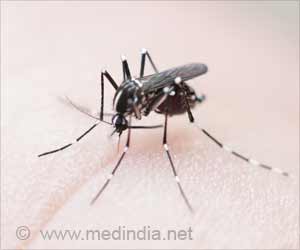What could be the economic burden of dengue in places like Burkina Faso, Kenya, and Cambodia in Africa? An answer to this question is being provided in this study.

‘The financial burden outcomes presented in this study can be used to estimate more accurate vaccination benefits when they are going to conduct a dengue vaccine interventions in the future’





Dengue fever is a vector-borne disease transmitted by Aedes mosquitos. While there are studies on the economic burden of dengue in some countries with high prevalence of the disease, countries in Africa had not previously been analyzed, and cost comparisons between countries are often not standardized.In the new work, as part of the Dengue Vaccine Initiative (DVI) Jung-Seok Lee, and colleagues developed a patient-specific survey questionnaire on the cost of dengue and administered it to patients in six countries in a standardized manner. The survey included multiple interviews to capture both public and private (out-of-pocket costs). Data was previously published on the economic burden of dengue in Vietnam, Thailand, and Colombia; the new paper deals with the cost of the illness in Burkina Faso, Kenya and Cambodia.
Four hundred fourteen patients with dengue were identified at the field sites in Burkina Faso, 149 in Kenya, and 254 in Cambodia. The average cost of inpatient care was $26 in Burkina Faso and $134 in Cambodia, while the average cost of outpatient care was $13 per episode in Burkina Faso and $23 in Kenya. In both African countries, the majority of costs were directly borne by patients and the costs were not insignificant compared to the economic cost of malaria, a major pathogen in the areas.
"The economic burden outcomes presented in the current study can be used to estimate more accurate vaccination benefits when conducting a cost-effectiveness analysis of dengue fever vaccine interventions in the three countries in the future," the researchers say.
Source-Eurekalert














